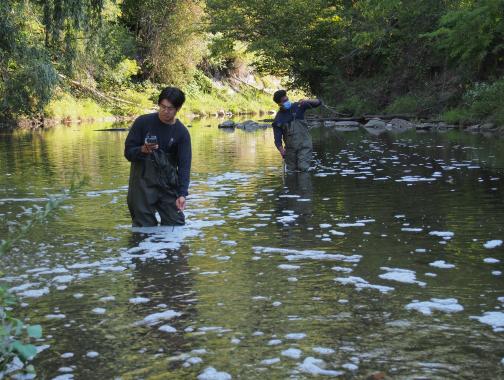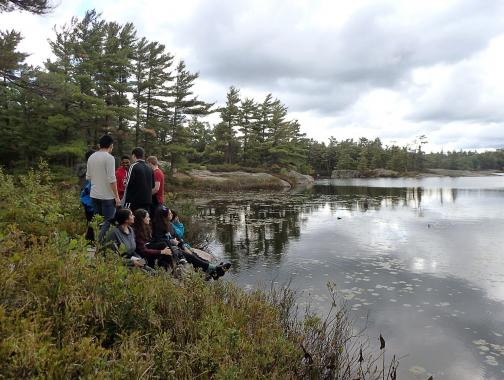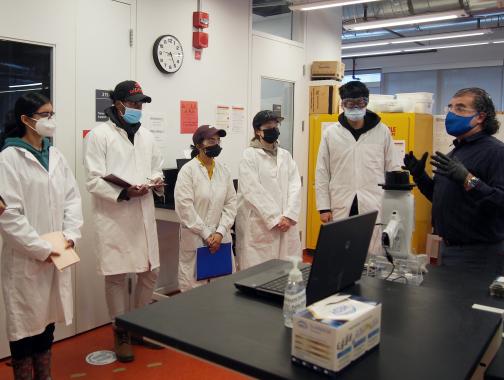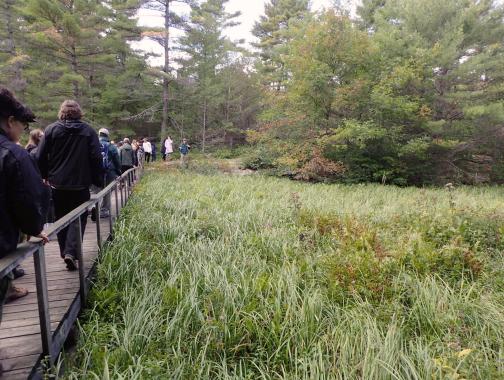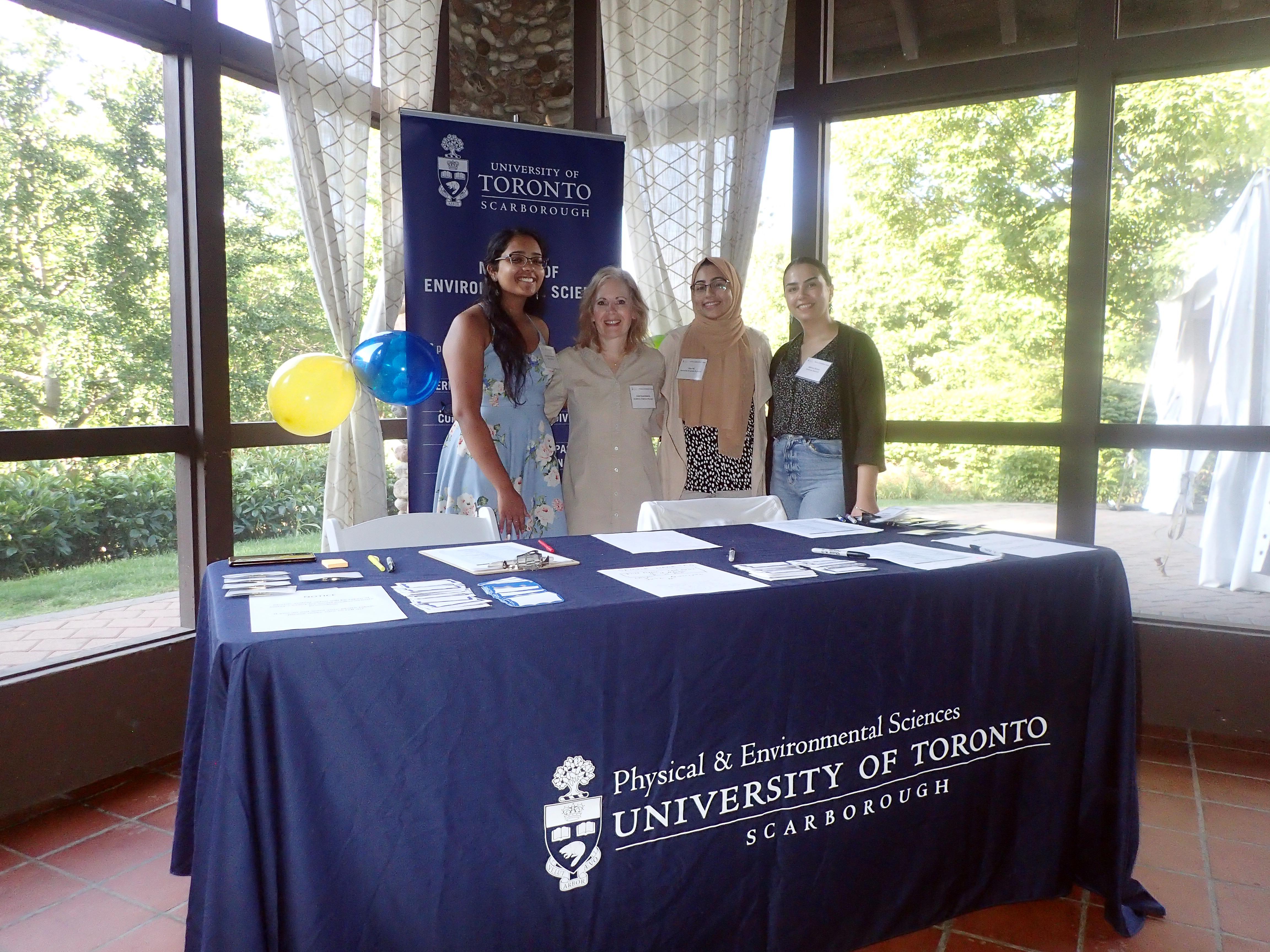Our planet is currently facing an environmental crisis. The nature of this crisis is multi-faceted, including global climate change, burgeoning population numbers, and threats to our forests, waterways, soil, and biodiversity resulting from human activities, such as natural resource extraction, pollution, biodiversity loss, and land-use change. The complex interactions between different earth systems require an integrated, inter-disciplinary approach to environmental science that creates bridges between traditional disciplines such as geography, biology, chemistry, and physics.
In this context, the purpose of the MSc in Environmental Science is to train bachelor of science or engineering graduates in the design, execution, and dissemination of research that is focused on the interfaces between traditional disciplines in dealing with fundamentally scientific, environment-focused issues.
This is a full-time, 16-month program with a unique May start date that will help students to more rigorously gather data towards the completion of a M.Sc. thesis. The M.Sc. in Environmental Science program will allow students to address major emerging research themes in the environment and pursue projects that make use of complementary research concepts, approaches, and tools. Faculty members are cross-appointed from several departments including: chemistry, earth sciences, geography, ecology and evolutionary biology, cell and systems biology, engineering, forestry, and physics, ensuring supervision of research projects across a broad range of expertise and research facilities. This program will engage these strengths in order to foster research that is critical for finding solutions to, or elucidating the root causes of, today’s critical environmental challenges.
The pillars of the proposed program are:
- Cultivation of a synthetic perspective that effectively draws upon both the breadth of environmental science and the depth of knowledge required to specialize in a specific sub-discipline area;
- Nurturing of critical thinking that impartially distinguishes between true knowledge produced and the multitude of sources of uncertainty typically characterizing environmental systems;
- A unique timeframe that is conducive to successfully undertaking research in environmental science by providing two field seasons, when students can create the required dataset(s) to address their research questions/hypotheses;
- A rich array of course offerings, taught by internationally renowned experts, through which students have the opportunity to delve into hydrology, environmental chemistry, ecology, geology, climatology, and mathematical/statistical modelling;
- A high-profile colloquium that allows students to improve their communication/presentation skills and facilitate the dissemination of their research findings; and
- The intellectually stimulating environment that characterizes the Graduate Department of Physical and Environmental Sciences, which is a recognized research powerhouse with outstanding annual research output (peer-reviewed publications, research grants, awards, etc).
The M.Sc. in Environmental Science is perfectly designed to address the needs of high-achieving students seeking an intensive research-focused master’s degree. This program is a natural partner to the existing and successful tri-campus Ph.D. program in Environmental Science. The program provides a shorter-term (16-month) opportunity that will be attractive to high-quality students wishing to pursue research in the environmental sciences, but who are not yet ready to make the financial and time commitments associated with a four- to five-year Ph.D. program. In this way, the proposed program will allow talented students that are trained in environmental research, to make a more informed decision as to whether they wish to pursue doctoral-level studies.
Our aim is to provide a unique approach to M.Sc. education wherein students begin the program with one-on-one mentoring in research. We also strive to foster interdisciplinary research project ideas among tri-campus graduate faculty. More specifically, to provide a viable option for shorter-term highly qualified personnel training in research that is in especially novel, or emerging, environmental themes, and/or are associated with novel research funding calls; for example: requests for proposals related to Arctic research for emerging pollutants, cumulative impact of climate change on ecosystem phenology, the Great Lakes Sustainability Fund in Areas of Concern, the Great Lakes Protection Initiative, etc. The lifetime of these funding opportunities is relatively short (1–2 years) and is thus perfectly aligned with M.Sc. projects that allow students to delve into cutting-edge research that often represents the priorities of the Federal or Provincial Government.
The tri-campus Graduate Department of Physical and Environmental Sciences is uniquely prepared to support this program because it brings together the combined strengths of graduate faculty engaged in environmental science research from all three University of Toronto campuses to offer a full range of professional and doctoral-stream programs supported by critical facilities housed at UTSC.
